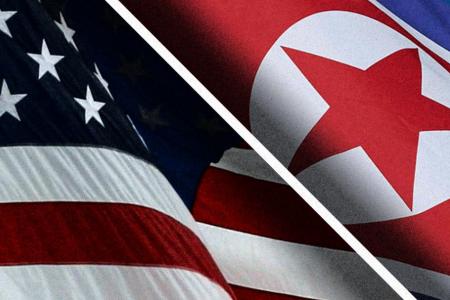Views: Use diplomacy to solve North Korea crisis
Sanctions on Chinese companies difficult to enforce and will inevitably lead to retaliation from Beijing
The ramping up of tensions on the Korean Peninsula and talk of unleashing "fire and fury" has made for unsettling headlines.
But beyond the war of words between Washington and Pyongyang, the crisis has also pushed US-China relations to a historic crossroads.
As North Korea's main ally, China is key to brokering any workable diplomatic solution to the stand-off and Washington needs to work with - rather than against - Beijing if one is to be achieved.
Indeed, as US ability to dictate geopolitical outcomes in Asia is diminishing, China's role as a regional power is continuing to grow.
Following near universal criticism of North Korea's last missile tests, the Chinese gave their support to a US-led move to toughen international sanctions against the North.
This banned exports of most of its key foreign currency earners like coal, iron ore and seafood, costing its economy - the US said - up to US$3 billion (S$4 billion) a year.
The key question now is whether Beijing is willing to enforce these sanctions.
And would it take further action, as it is under pressure to do from the US, to stop the sale of oil and gas to Pyongyang, shut down its access to Chinese banks, and to block cross-border flows of consumer goods, food and other essentials?
The answer is almost certainly "no" - and this realisation is fuelling increasingly hawkish sentiment in Washington calling for unilateral US sanctions against Chinese businesses to step up the pressure.
If successful, so the thinking goes, Pyongyang's provocative behaviour would be curtailed.
In fact, the Trump administration has already made moves in this direction, issuing unilateral sanctions against the Bank of Dandong, which was laundering money and facilitating North Korean commercial activities; against logistics company Dalian Global Unity Shipping; and against two Chinese citizens.
HIT LIST
Added to that, Beijing has been passed a US-drafted "hit list" of 30 companies accused of pursuing illicit business activities with the North Koreans.
Yet, following this track is likely to stir up a host of new problems for the US, and will do little to achieve the desired goal of disarming Pyongyang.
There are at least three reasons for this.
First, sanctions will cause likely harm to innocent third parties - including American and Western companies that abide by rules of transparency.
Second, with many ways to circumvent, evade and hide from enforcement efforts, sanctioning Chinese companies will be impossible to enforce.
And third, sanctions will add to tensions in China-US relations by inevitably leading to Chinese retaliation, causing further geopolitical costs down the line.
Enforcing more sanctions against Chinese companies would be next to impossible, as Beijing will have no inclination to divulge truthful trade-related or financial statistics for the targeted companies.
In such a situation, the US would be unable to gauge whether sanctions were effective, or even if the right companies had been targeted.
Furthermore, there would be nothing to prevent any sanctions-hit Chinese banks or companies from opening shell companies or carrying on business through other black market intermediaries.
And given the endemic corruption within the Chinese system, market dynamics would mean that if sanctions were imposed on Chinese companies, the financial rewards for trading with North Korea on the black market would actually increase, not decrease.
All of this is taking place against a background of American disengagement from Asia, most notably seen in the ill-advised withdrawal from the Trans-Pacific Partnership.
As the US pulls out, the power vacuum is further enhancing Beijing's diplomatic clout.
Yet there is much to be gained for the US by working with China.
If Beijing is able broker a positive outcome in the North Korea crisis, that could set the stage for better cooperation and more engagement between the world's two largest economies.
After all, many other simmering challenges await, among them addressing fair trade practices, tackling cyber security, and territorial disputes in the South China Sea.
For now, the US and its allies should let diplomacy run its course on the Korean Peninsula, before rushing ahead with more sanctions.
The writer is a visiting senior fellow in the department of analytics and operations at National University of Singapore (NUS) Business School.
Get The New Paper on your phone with the free TNP app. Download from the Apple App Store or Google Play Store now


